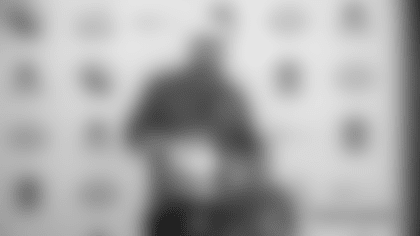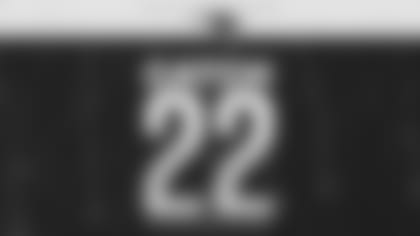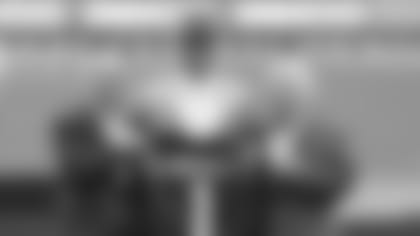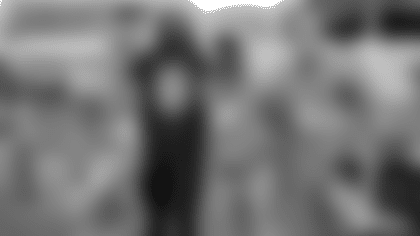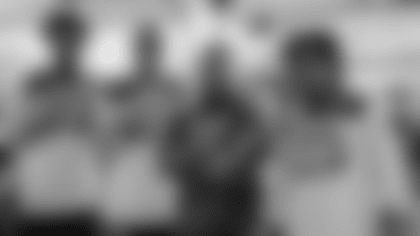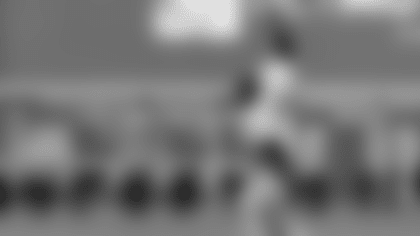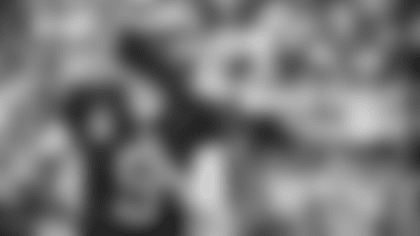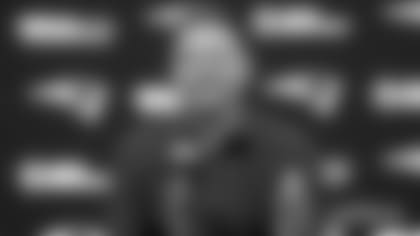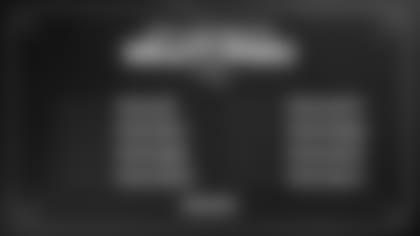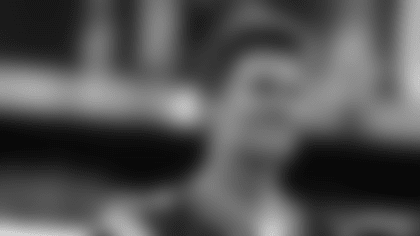[wysifield-embeddedaudio|eid="636326"|type="embeddedaudio"|view_mode="full"]
Though Bill Belichick wasn't asked directly about the possibility of losing his two coordinators to head coaching jobs in the coming weeks, the topic of potentially having to retool his coaching staff was broached at the conclusion of his Sunday morning day-after-game conference call.
In the hours following the Patriots impressive Saturday night 35-14 beatdown of the Titans at Gillette Stadium, various reports indicated that New England defensive coordinator Matt Patricia was "likely" to take over the Lions while offensive coordinator Josh McDaniels could reportedly be deciding as to whether he wants to become Andrew Luck's next coach in Indianapolis.
As such, the final two queries in Belichick's conference call revolved around how the coach goes about replacing coordinators, which historically has seen the coach promote assistants from within his existing New England staff.
"Well, in any decision that involves personnel on the team I always try to do what's best for the football team. That's what goes into it. There could be a thousand things, so if you're signing a player, drafting a player, however you acquire a player, or coach, or a scout, or an administrative positon then I always try to think of what's the best thing for the football team," Belichick began in regards to his general approach to the possible impending decisions. "You look at what the team needs. You look at what that area requires or one thing might be more important than another in that particular time or situation. Based on that, then sometimes you have one or two players to pick from, or three players to pick from, or three people at some other positon that all kind of fit the basic requirement of what the needs of the team and the organization are and try to take the best one. Sometimes you can't. Maybe none of them really do it, but you either go light at that position and wait until you can find a better option or you take the best option that's available. Every situation is different. All people are different. Everybody has their own personality, strengths, weaknesses and so forth. There's no two players that are the same. There's no two people that are the same. I mean, we have identical twins on the team and they're not the same. It just depends on each individual situation and what the circumstances are on the team and who the people are that are available. In the end, what I always try to do is what I think is best for the football team."
A follow-up question wondered if familiarity with the Patriots system would be a big factor in possibly trying to fill a coordinator role.
"Each person has their own – every player – look, every person, every coach, everybody has their own individual characteristics," Belichick said. "Call them whatever you want; strengths, weaknesses, areas they can improve in, areas of leadership, areas of experience, so forth. Everybody's different. We're all different. To me, there's no right or wrong answer. There's no set model. The only thing that's consistent for me is doing what's best for the football team. I mean, I know that's hard for some people to understand why I would think like that, but that's the only way I can really put it into any kind of context. What other agenda is there? What other reason is there really for making any personnel decision? I don't know."
The rest of the highlights of Belichick's morning conference call revolved around the impressive win over Tennessee, including his views on a somewhat controversial neutral zone infraction call on a punt to jumpstart a New England scoring drive, praise for the team's front keeping Marcus Mariota hemmed in and an explanation of how the Patriots got their running backs so involved in the offensive game plan.
1. Punt penalty "a heads up play by" Grissom: There was a controversial call – isn't there always in NFL playoff games – in the second quarter of Saturday night's battle that saw the official initially call a false start on Geneo Grissom on a Patriots punt only to then flip things to flag Titans punt return team member Brynden Trawick for a neutral zone infraction. The final penalty call gave the Patriots a second life as Tom Brady led New England on a 16-play, 91-yard drive to a Chris Hogan 4-yard touchdown reception to take a 21-7 lead with less than two minutes to play in the first half.
The call clearly helped swing the momentum in the game and was so curious that Tennessee reporters asked for a pool report explanation from referee Ron Torbert.
Sunday morning, Belichick explained why the he thought the officials got the call correct and wasn't surprised by the change of heart by the crew.
"I wasn't because I thought that Trawick entered the neutral zone and Geneo reacted to him," Belichick observed. "We practice that play every week and if it's that kind of situation – fourth and less-than-5 – and the player enters the neutral zone then we want to react to it and force the penalty and not allow them to get back and reset and not have the opportunity for it. I thought it was a heads up play by Geneo to react to that. That's what he's supposed to do and that's what he did. I thought we did the right thing. He definitely entered the neutral zone. I mean, at least what I saw. I thought Trawick was in the neutral zone, so assuming that we agree on that, if he did that then the player on the offensive side of the ball – if he reacts to that then the penalty is on the defense."
He also noted that the first down by penalty was only a part of the long scoring drive and his team taking control of the game.
"Football's about taking advantage," Belichick declared. "It's about making plays and taking advantage of opportunities that are there. Yeah, offensively, as you said, it wasn't one play. We had whatever it was – 80 yards to go – or whatever it was, a long way to go. So there were a lot of plays that had to follow that, but it gave us an opportunity to possess the ball."
2. "A good group effort" on defense:Though Mariota actually led the Titans with 37 yards rushing, the dual-threat quarterback was pretty well held in check by the Patriots defensive front. Though Tennessee said afterwards that Mariota dealt with a leg injury over the final three quarters, a lot of credit still needs to go to the scheme and execution put forth by New England's defense. Some of that included Kyle Van Noy serving as a spy on Mariota, working in conjunction with a controlled pass rush that ended up piling up a Patriots postseason franchise-record eight sacks.
"I would just say that's kind of a good group effort by the entire rushing and pass rushing unit," Belichick said. "It wasn't always one guy. It wasn't always the same guy. We had a couple different things that we were doing there. Hopefully, that caused some hesitation or indecision. I'm not sure looking at it now that it would really be clear on film as to who exactly was doing what, so we'll kind of leave that answer out of the response here. I would say, suffice to say, there was more than one player involved in that. But again, it is a coordinated effort so even if you have one guy doing it, if he gets put in a bad position where it just makes it too hard then you lose the effectiveness of tracking the quarterback with a particular player. In my opinion, there needs to be some kind of coordination so that you can maximize the production of the guy who's got him."
3. "Sometimes it's easier to throw" to backs:Tennessee struggled to deal with opposing running backs as pass catchers throughout the regular season. It was a weakness that the Patriots clearly targeted. Dion Lewis had nine catches for 79 yards, including a 31-yard screen pass to ignite a scoring drive. James White had four catches for 29 yards and a score, including a jet sweep-like underhand scoring toss by Brady.
New England's backs were a key part of the offensive success, and Belichick explained the game plan to get them the ball in space against Tennessee rather than run right at the NFL's No. 4 rush defense.
"Sometimes it's a lot easier to get the ball out in space and let the back make some yards as opposed to having to block seven or eight guys to get him into that same space," Belichick said. "The advantage to handing the ball is you should gain some yards, whereas an incomplete pass – that could be a no gain. To make yards in the running game, any significant yards, you've got to create some space for the back and that means in the Titans case blocking an extra guy in the box because they didn't play a lot of split-safety coverage. You've got to block six, seven, eight guys depending on what personnel group you're in, in order to get the running back into space where he can do that in the passing game and he can make a lot of yards, like that screen pass that we threw to Dion. It would have been hard to hand the ball off and get him into that much space. You'd have to make a lot of, not good blocks; you'd have to make a lot of great blocks to get everybody that far out of the way so the runner could attack the field like Dion did on that play. To answer your question, yeah, getting backs into space in the passing game or in the running game, however you do it, and there's different ways of doing it but sometimes it's easier to throw him the ball into space than it is to, like I said, block seven or eight guys and try to create that same situation."



